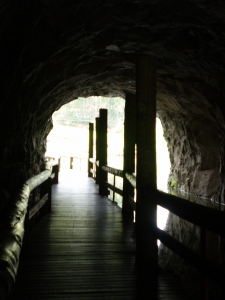Holiness in African Perspective
Missionary-scholar Jim Harries discusses the difference between the biblical categories of clean and unclean, holy and common. He argues that neither Africa or the West have a correct understanding of these concepts.
A story about man whose neighbours describe as a good Christian. The man was a passenger on a bus. He went to talk to the driver. Something upset him. He struck out at the driver. As a result, the bus crashed and everyone in it was killed. His neighbours argue, did the man go to heaven or hell?
Abstract
Many African people, as the Rekabites praised by God in Jeremiah 35, keep strictly to ancestral requirements. In parts of Africa, this is done to avoid death. Biblically we find two levels of holiness. Akathartos (unclean) contrasts to katharos (clean), but also bebelos (common) as distinct from hagios (holy). The latter (hagios) presupposes the existence of katharos, whereas something may be katharos without being hagios. These categories are largely forgotten in the West. African languages do not distinguish them clearly. Jesus’ emphasis was on achievement of hagios. This important and very positive orientation can easily be lost in contemporary theological education.
Introduction

The two categories – cleanliness and Godliness – have strong parallels. The distinction between them is often unclear. This article suggests that confusion in distinguishing these categories is exaggerated by Western people’s tendency to presuppose themselves to be hagios (holy instead of being common), while African people’s tendency is to seek to be katharos (clean) while remaining akathartos (unclean) and failing to perceive hagios.
Greek terms are used to represent biblical standards so as to avoid confusion with misunderstanding of translations of those terms on the part of Africa and of the West. The categories of ‘Africa’ and ‘Western’ are used loosely with the understanding that they are generalisations and that there are in both cases exceptions to what is herein stated.
Clean and unclean in African Churches
A group of KIST students [Kima International School of Theology in Maseno, Kenya] joined me a few years ago on a visit to an indigenous (African founded and African led) church near Yala. Many things struck them as interesting. One was to find that even while the service was going on and although the church was not full, some members sat listening to the service sitting outside the church building. When the students asked the pastor later, he told them that those people sitting outside were ‘unclean’. There were various reasons for them to have been unclean; some ladies were having their period, other people had been to funerals and handled a dead body, and so on. According to this church, such unclean people should not be in the holy place, i.e. the church building. I have in recent months asked a number of congregations in Luoland about a particular traditional law, and their take on its importance. Luo tradition states that a son should build his house in front of and below the parental house, with the door at right angles to the door of the main house, facing into the middle of the homestead. If you travel around Luo areas in Kenya, you will find that this pattern is almost invariably followed. On visiting church congregations, I have asked them whether they would be ready to contravene this ‘law’ and allow their sons to build their houses behind the parental house, if paid to compensate them for doing so. I have asked, would they be ready to allow their son to build behind their house, if given KSh100,000 [about $1,000]? Everyone in the church congregation expressed clear refusal. Then I asked if they would be ready to allow their son to build behind their house if offered KSh1,000,000 [almost $10,000]? Still everyone has refused. On a few occasions someone has taken the trouble to explain the justification for their refusal; having their son build behind the parental house would very likely result in his death, and no way would these people take any amount of money that would result in the death of their children.


